Russians slow to fall into step with Vladimir Putin’s march to war
There are suspicions that Vladimir Putin’s ratcheting of tensions with Ukraine is a ploy to boost his flagging approval ratings. Yet there are few indications that public is rallying around its “national leader”.
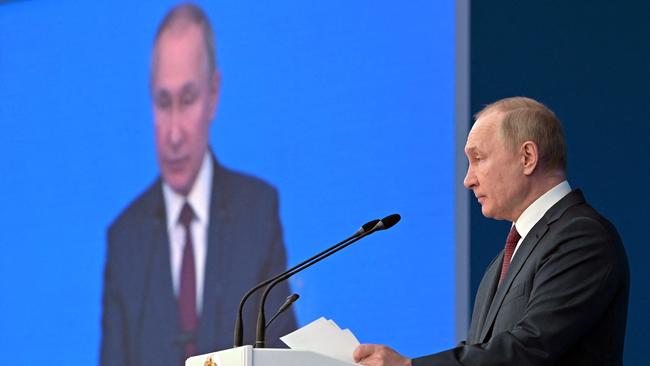
The protester stood in Old Arbat, one of Moscow’s most famous streets, with a sign that read “No war in Ukraine”. The area was crowded, but few passers-by paid attention to the middle-aged dissident amid the steadily falling snow.
Despite spiralling tensions between Russia and NATO over Ukraine, there is little sense in Moscow that war is on the horizon. Unlike in 2014, when the Kremlin seized Crimea from Ukraine, sparking a wave of nationalist sentiment, the prospect of a fresh conflict that could suck in western countries is rarely mentioned. These days, elderly acquaintances who once ranted about the “junta” in Ukraine are more likely to complain about food prices.
State television has attempted to whip up passions, announcing recently that Russia could be on “the verge of war” with NATO, but its broadcasts are relatively tame compared with eight years ago, when Kremlin-run media falsely accused Ukrainian soldiers of crucifying a three-year-old boy and boasted that Russia had enough nuclear weapons to turn the United States into “radioactive ash”.
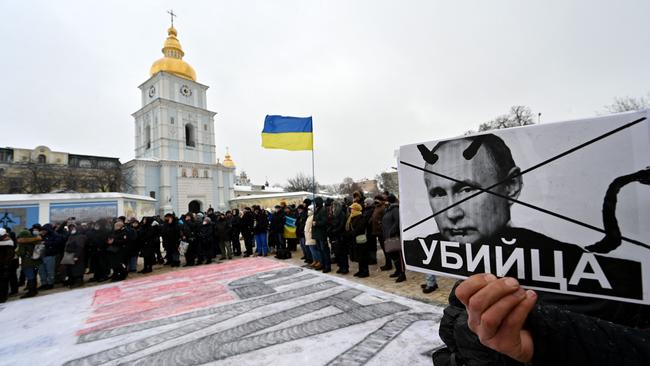
In 2014, tens of thousands people marched in the Russian capital at an anti-war demonstration. Today, the fractured anti-Putin movement, whose leaders are either in prison, in exile or dead, has barely raised its voice. “There is little talk about Ukraine among the Moscow intelligentsia nowadays,” the journalists Andrei Soldatov and Irina Borogan wrote.
Yet the war drums are getting louder. Talks last week between American, NATO and Russian officials on Moscow’s demands for the western alliance to halt its eastwards expansion ended in deadlock, bringing the possibility of a war closer.
On Friday, Washington accused Russia of preparing a “false flag” operation as a pretext for an invasion of eastern Ukraine’s Donbas region. “The operatives are trained in urban warfare and in using explosives to carry out acts of sabotage against Russia’s own proxy forces,” the White House said.
Russia has an estimated 100,000 troops within striking distance of Ukraine, but insists it is not planning an invasion. However, Vladimir Putin and other Russian leaders have threatened an unspecified military response if NATO does not withdraw troops from central and eastern Europe and commit to keeping Ukraine out of the NATO.
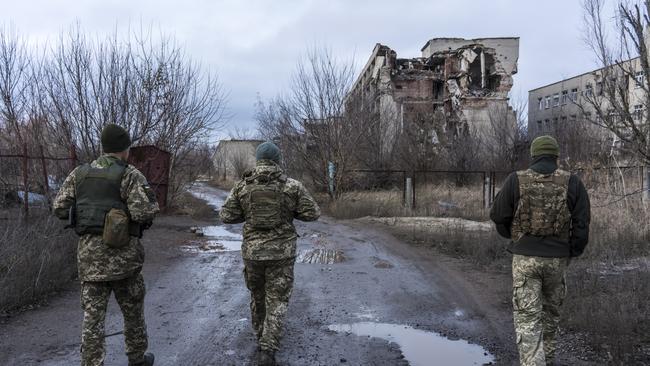
There are suspicions in the West that Putin’s ratcheting of tensions is a ploy to boost his flagging approval ratings, which have slumped to 32 per cent amid a decline in living standards triggered partly by western sanctions. After the annexation of Crimea, Putin’s popularity soared. Yet there are few indications that the Russian public is again preparing to rally around its “national leader”.
Many analysts in Russia believe Putin is determined to carry out what he is thought to see as his “historical mission” of pushing NATO back from his country’s borders.
“Ukraine is [Putin’s] last stand,” Dmitri Trenin, the head of the Carnegie Moscow Centre think tank, told CNN last week. “I think he’s serious – he’s not bluffing.”
Annalena Baerbock, the German foreign minister, is due to travel to Moscow this week, and the British foreign secretary, Liz Truss, is also believed to be planning a visit.
Yet Moscow is unlikely to be mollified by a flurry of high-profile diplomacy. Sergei Lavrov, the foreign minister, said on Friday that Moscow was waiting for a formal reply to its demands from NATO, but warned: “We have run out of patience.”
THE SUNDAY TIMES


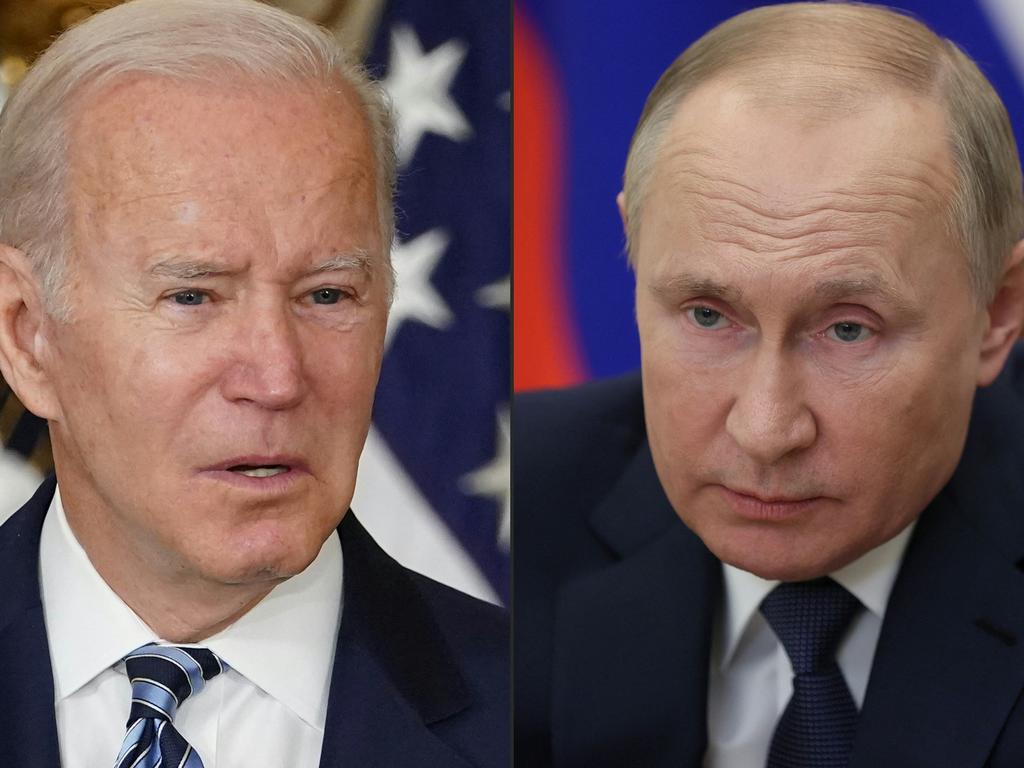
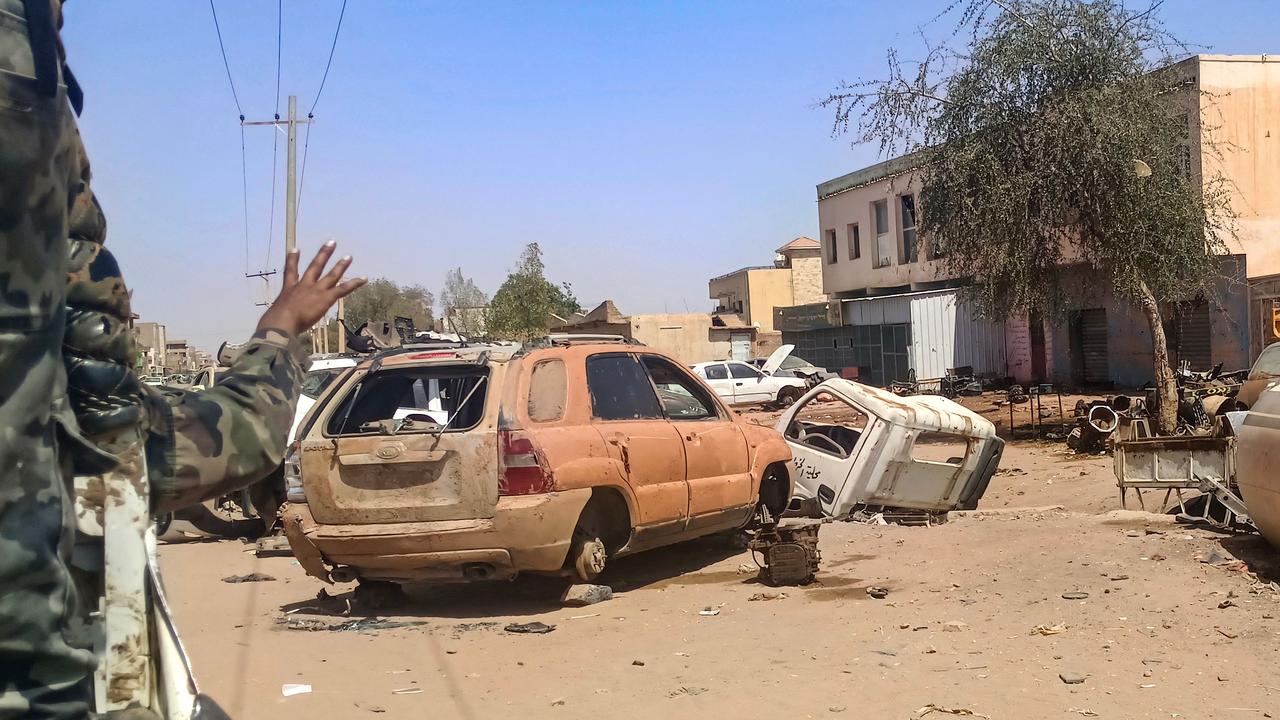
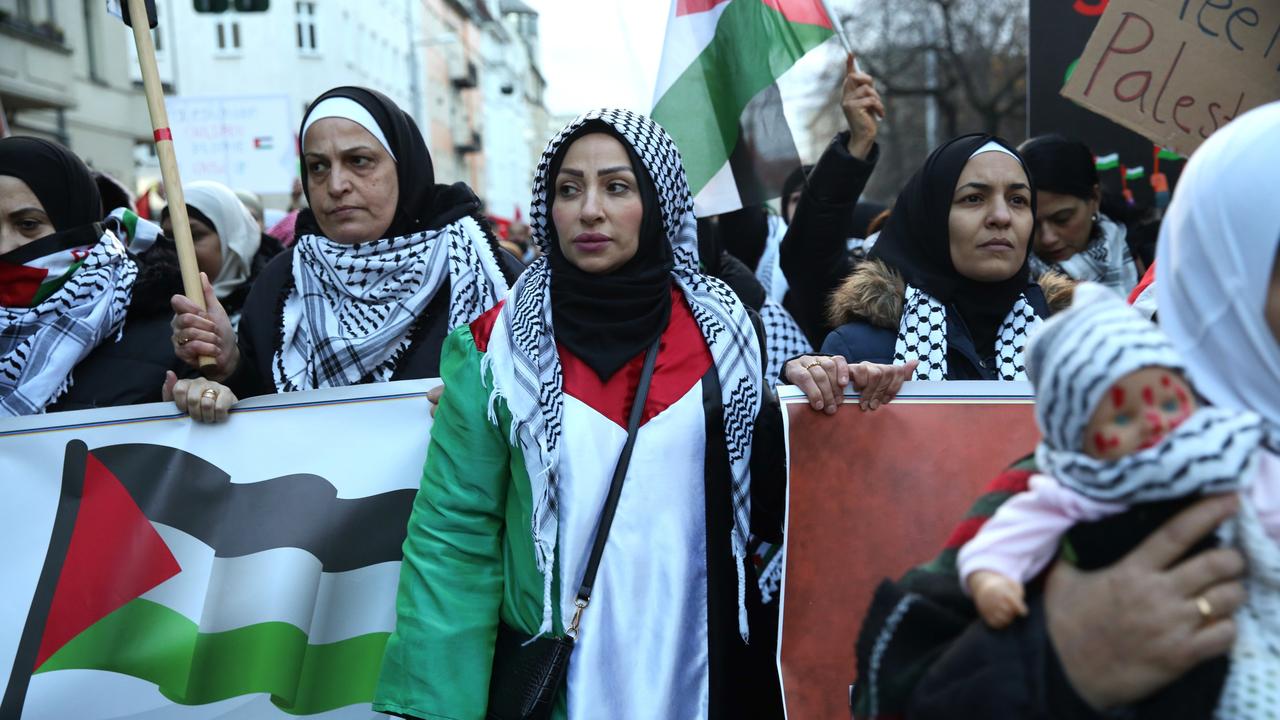
To join the conversation, please log in. Don't have an account? Register
Join the conversation, you are commenting as Logout